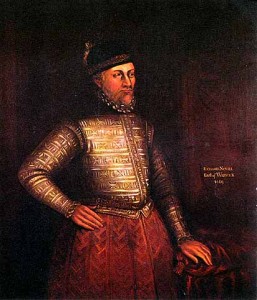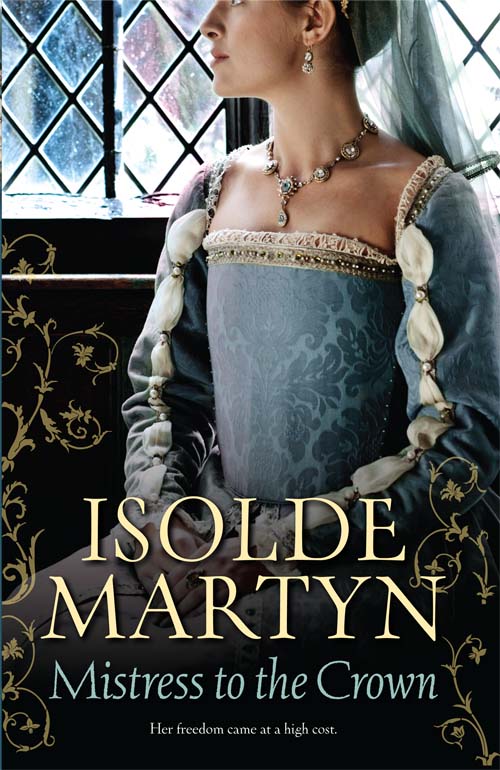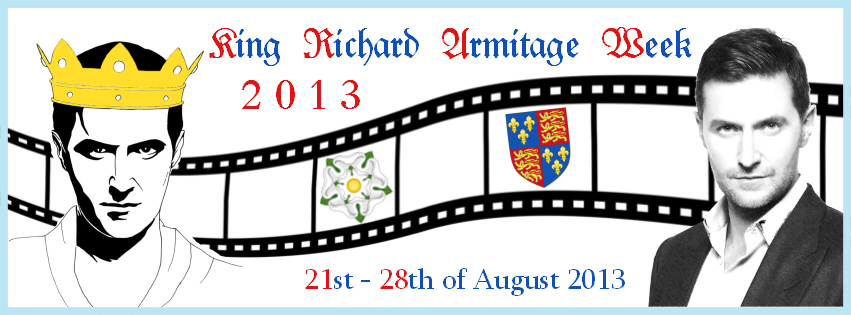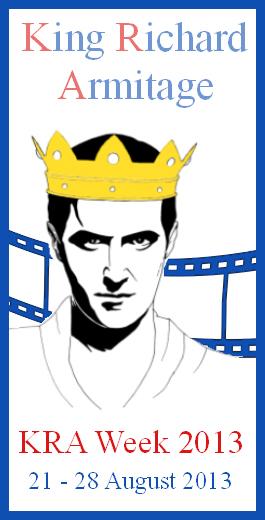KRA Week 2013-3: History & Law – Author Matthew Lewis
Links: King Richard Week 2013 & Quiz
♕ ♛ ♕
Interview with author Matt Lewis
about
his research & King Richard III
First of all, I need to confess, having such a knowledgeable author and researcher as interview partner let my curiosity run away with me. I hope you will enjoy the wonderful and insightful answers by author Matt Lewis.
Matt Lewis also currently publishes a series of articles in defence of King Richard III on the Royal Central blog
- The Real White Queen? A Defence Of King Richard III (02.08.2013)
- The Defence of Richard III Part 2 – The Foundations of Evil (06.08.2013)
- The Defence of Richard III Part 3 – To Kill A King (11.08.2013)
- The Defence of King Richard III Part 4 – Bosworth, Shakespeare & That Horse (22.08.2013)
and an interview by Karen Kilrow with more background was published there (13.07.2013).
But now to the interview and my curious questions:
Can you tell us a bit about yourself and your historical background?
I have been passionate about history since school, where it was my favourite subject. I studied the Wars of the Roses there and it immediately grabbed me. The intricacies of the family ties, the loyalties and the betrayals are like the plot of the most complex tv series you ever watched, only this was real people’s lives being torn apart.
The story of Richard III was also something I was immediately fascinated by. The difference in his reputation before 1483 and after was so diametrically opposed that it just didn’t make sense. I had to learn more! An interest became a passion. I read book after book about the Wars of the Roses and Richard III and the more I read the more convinced I became that something was amiss.
How does your legal background fit into your interest for history?
At university I studied law and even that seemed to complement the study of history. I find that having a law degree complements an interest in history very well. A solicitor I worked for once told me that no one knows all of the law, the trick is knowing how and where to find what you need. This principle applies to history too. No-one knows all of history.
The skills of research are the same. A law degree teaches you how to find facts, examine and understand them from all angles, to view things from the perspective of others and then present your findings. Historical research is identical. When writing fiction, legal training helps further because it teaches you to understand the facts and then make them prove what you need them to prove!
Why is it so difficult to get unbiased research into the life and times of Richard III, even more than 500 years after his death?
It is hard to understand why Richard III doesn’t get the kind of impartial study almost anyone else does. I think it is due in part to history, for purposes other than academic study, liking to box people up neatly as ‘goodies’ and ‘baddies’. The Tudors followed Richard and were keen to present a picture of an England ravaged by tyranny from which they saved a grateful people. Obviously he was then maligned by Shakespeare and that image of him stuck. There has always been a core of historians keen to shine the light of fact on his reputation but it has been hard to fight against a presumed, accepted image. Because of this the argument becomes more polarized as some believe him an evil tyrant and others try to paint him as a saint. Somewhere in the middle the real man is lost. He was neither a saint nor a demon and until the argument moves away from such passionate polarization it will always prove hard to judge him dispassionately.
Might this difficulty to get some resemblance of ‘justice’ for a historical figure have something to do with the current royal family descending from those getting into power after the Battle of Bosworth or the perception of a need to legitimize the later religious separation from Rome or have something to do with a modern interpretation of what monarchy and democracy should be or do?
I think that the present royal family have little impact on the study of the history of personality. They would, I suppose, have a vested interest in the institution of monarchy and so would not wish to become embroiled in any kind of discussion of rights and wrongs. To do so opens them up for such criticism in the future. It is for this reason, I suspect, that the royal family is not keen to allow the opening of the urn in Westminster that supposedly contains the remains of the Princes in the Tower and of other royal tombs such as Edward IV’s for DNA comparison. I doubt that it relates to insecurity or rivalry but rather to the sanctity of those graves. There are human beings resting in peace there. If permission were given now, the same could happen in the future to those still alive now and they may well not want that. Whatever the rights and wrongs of Bosworth, Henry VII was anointed king, whether by right of blood or conquest becomes irrelevant. No-one could challenge the legitimacy of the current royal family now on that basis. If we look further back, Edward IV took the throne by force, as did Henry IV. Do we then head back to William the Conqueror?
Will finding the ‘real’ King Richard III now help with the research to also start the search for the ‘real’ person, not the legend?
The discovery of Richard III’s grave is an opportunity that I hope will be exploited to the full by those seeking a re-evaluation of his reputation. I noticed a real surge in sales of my novel when it was announced, so clearly interest has been captured and just needs to be exploited. The White Queen series has drawn attention to the Wars of the Roses period too. Visitors are pouring in to the exhibition at Leicester and I hope that they will be taking away a different perspective on him, if they are not already Ricardians! I was lucky enough to visit the dig site at Greyfriars on one of the open days and it sent a chill down my spine to think that I could be standing so close to the remains of a man I had studied for so long. I was like a crazed fan. I find it amazing that after everything that has happened on that site – the demolition of the monastery, the building of the mayor’s house and gardens, the demolition of that and all of the subsequent Victorian work, not to mention the laying of the car park – that his grave remained intact and unspoiled, missed by every pick axe and digger that had been on the site. His funeral will be another huge event, unlike anything we have seen before. It would be fantastic to make it there and I will be doing my best to attend some part of it.
I hesitated a bit with the following question, not wanting to heat up the brewing battle. But Matt Lewis answered my question about King Richard III’s last resting place with grace and historical knowledge, so I need not have worried:
With all the discussion about the ‘Battle of the Cities’, what is your position regarding the fighting towns York and Leicester?
In terms of where he should be laid to rest, I have no issue giving my preference. From the very outset there has only been one place that I believe he should be buried and that is Westminster Abbey. He was a king of England and deserves no less. Much has been made of Leicester’s right to him and York’s desire for him. Indeed, it has been claimed that he wanted to be buried at York Minster. Whilst he was lord of the north for his brother this may have been his intention but by the time that he died he was King of England. The clearest indication of his final wishes is the fact that he had his wife buried at Westminster. He may well have intended to have their son moved there from Middleham too, but I think Anne’s presence at Westminster tells us all that we need to know about his wishes.
How do you see the legal aspects of the appeal by the relatives of King Richard III, the Plantagenet Alliance?
The legal challenge that has been brought is flawed in so far as those bringing it are not descendants of Richard III, they are descended from his siblings. It is also my understanding that the reburial of remains discovered during an archaeological dig does not require consultation with the relatives where the remains are over 100 years old, as those of King Richard clearly are. Best practice is to have remains interred at the nearest church or cathedral to the location they were discovered too. Leicester University appear to have done all that was required of them and I suspect that their wish to have him buried at Leicester Cathedral will be, in the end, granted.
You wrote a historical novel about Richard III, clearly depicting Richard III as human being, not the caricature not only Shakespeare, but also some historians made and still make him.
What is your reason to do so and where do you see you have to add to all the previous works and novels about Richard III?
I wrote my novel as an indulgence really. It took about 10 years of picking it up and putting it down but I enjoyed writing and researching it. I tried to remain as historically accurate as possible, not least because the true story is far too interesting to have to invent anything! The book looks at the more domestic side of Richard’s life from the Battle of Barnet when he helped his brother Edward IV regain his throne to Bosworth. Most people know about the battles he fought, the seizure of the throne, the Princes in the Tower and the Battle of Bosworth but I wanted to explore him as a more rounded person, at home with his wife, relaxed with his friends, but still dealing with huge issues of national importance. ‘My’ Richard has faults, too. He is far from perfect. His temper is short and his inability to understand those who do not share his views leave him politically naive and exposed. The actions that he takes in the book broadly follow the known history, so if he attracts sympathy for his actions, it is because he deserves it.
Whatever you decide about him by the end, at least it will be based on fact rather than accumulated mythology.
Studying law helps to view things dispassionately, to detach from them and present them objectively. I am an ardent Ricardian, though I don’t necessarily belief he was without fault. I hope that by presenting a man trying his hardest to make his way in a hostile, uncertain world, struggling to protect his family, I could balance out the saint v tyrant argument a little.
To what extent is your work “Loyalty” based on the research by Jack Leslau about the image interpretation and connection between Sir Thomas More and Hans Hobein? (Research presented on the website: www.holbeinartworks.org)
I first read a brief reference to Jack Leslau’s work in A.J. Pollard’s King Richard III and the Princes in the Tower. It fascinated me and I read more. The more I learned the more interesting it became. In the end it provided the frame through which Richard’s story is told, so there is no doubt that it influenced me a great deal. Ricardians will probably know what that means for the story, but it is not well discussed beyond this. The sequel, which is nearing completion, follows both threads of this story to something which I believe is entirely new. At least I have never come across my next theory before! Holbein returns and we also follow the aftermath of Bosworth as those loyal to Richard who survive try to find a place for themselves in a changed world, a world that hunts them.
You wrote two further works about King Richard III and the Wars of the Roses. Both are rather short volumes with highly condensed information, giving an excellent overview of events and happenings.
What was your reason to write those and for which audience are they intended?
I have begun a series of brief factual history books offering my take on the period I love. A Glimpse of King Richard III was born of the new interest in the king and is a very short biography. It is aimed squarely at those interested in the subject because of the recent discoveries and discussions but who do not wish to dive into a weight biography – though I enjoy these immensely, they are not for everyone. I thought those with a casual interest might pick it up and hopefully put it down with a different perspective on King Richard III. A Glimpse of the Wars of the Roses adds depth to the subject but is also brief, beginning with the roots of the conflict and then following the chronology of the politics and the battles. Again, with interest high and The White Queen drawing much attention, I thought some with a more casual interest in the period might find it interesting. There is more to come in the series too. Hopefully people will enjoy my lighter take on the complexities of the period.
Book publications currently available by Matthew Lewis on Amazon.com / Amazon.co.uk
:
* * *
* * *
* * *
Links: King Richard Week 2013 & Quiz
King Richard Everywhere …
♛ King Richard Armitage ♛
Richard Armitage currently had a promotion tour for “The Hobbit” in Sydney, Australia.
In one of the interview sessions with an audience, hosted by Popcorn Taxi, where fan-questions were allowed, the question of his interest in King Richard III turned up. Mr. Armitage gave the following answer (Quoted after the transcript by Groovergreen on fedoralady’s blog TheArmitageEffect):
Does he still plan to play Richard III on film?
RA: “Many, many plans but they are all in my mind at the moment. There is a possibility but it is a matter of when and how. Maybe I’ll be too old to do it.’’ (Collective groan of disbelief from the Armitage Army in the front rows.)
(Strangely the question, like another already previously mentioned elsewhere, is completely missing in the pronounced full transcript of the Q&A session on TheOneRing.net, while no gap is indicated.
But already two fans independently reported to have heard this question and his answer at this event, so it is sufficiently confirmed to have been part of the evening in Sydney on May 1st, 2013.)
♛ King Richard III ♛
- Current Archaeology Live!: The King under the car park. The search for the last known resting place of King Richard III, by Carly Hilts (01.05.2013) – Presentation about the process of the discovery and find by Richard Buckley, Archaeological Services, University of Leicester the 2nd of March, 2013:
- Helen Rae Rants (Blog): History Matters: More Ricardian Rubbish, by Helen Rae (03.05.2013) – Response from a Ricardian to the late article in The Guardian about the deductions about King Richard III and his life from the state of his teeths.
- ThisIsLeicestershire.co.uk: Richard III Society responds to “slab not tomb” decision, by Alan Thompson (06.05.2013) – The Richard III Society now takes open position against a slab and for their design of a tomb, which was designed with much sensitivity and care for the dignity of the deceased king of the late 15th century.
- ITV.com: Former King’s distant relative to lead march through York (06.05.2013) – A march through York took place at noon on May 6th, 2013, lead by King Richard III’s 16th grade grand niece Vanessa Roe.
The march went from the Castle Museum at 12 noon and arrived at Museum Gardens at 2 pm. - BBC: Richard III burial row campaigners march through York (06.05.2013) – With video interview with Vanessa Roe, a 16th generation great niece of King Richard III.
- The York Press: Marchers mass in York as row over Richard III hots up, by Richard Catton (07.05.2013)
- ThisIsLeicestershire.co.uk: Richard III visitor centre boss sets out his vision, by Peter Warzynski (08.05.2013) – The team behind the planned visitor centre for King Richard III in Leicester.
♛ King Richard Everywhere ♛
- Savannahnow.com: Free enterprise: Crowd sourcing into the future (03.05.2013, updated 04.05.2013) – How King Richard III even can appear in unlikely topic combinations. Here interwoven with great skill.
When clouds appear, wise men put on their cloaks
- University of Birmingham: Richard III: The real king of history, or marvellous theatrical villain?, by Prof. Michael Dobson (about 01.05.2013) – Please follow the link “Read full opinion” to see the full statement.
- Los Angeles Broadway World: BWW Interviews: Denise Devin on Researching RICHARD III for Zombie Joe’s Underground, by Ellen Dostal (04.05.2013) – A new apporach to Shakespeare’s play about King Richard III – The effect the find in Leicester already has on the interpretation of the dramatic play by Shakespeare.
- TheNorthernEcho.co.uk: Beer brewed in honour of king launched at annual Yorkshire Dales food and drink festival, by Joe Willis (02.05.2013) – Is there even a report if King Richard III liked beer? The current reports about him eating too much suggar do not convince me right now, not after the bad state of teeth in the late Middle Ages in general. But I certainly like a toast brought out for King Richard III with a beer King Richard III and potentially acompanied by a cheese King Richard III. What a feast!
King Richard III Cheese – as it should be, pure white for the White Rose of York. - BBC: Richard III burial row campaigners march through York (06.05.2013)
Please do understand, that the article lists here on KRA will not take up every topic or mention of King Richard III, but strongly select, what really contains some new information and might be of interest to historically interested and film- and Richard Armitage supporting readers of this blog.
Richard III – Impressive School-Report
♛ King Richard III ♛
- Catmose College: Most exciting excavation yet. Catmose reporters went to Leicester (20.03.2013) – Reporter Toby interviews Richard Buckley and Matthew Morris about the excavations of King Richard III’s grave:
- Video by Colin Hyde, East Midland’s Oral History Archive (YouTube: EMOralHistory, 26.03.2013)
with a tour through King Richard III’s Leicester:
More details at the University of Leicester website. - ThisIsLeicestershire.co.uk: Richard III: Ideas flood in to relocate statue of Leicester’s car park king, by Peter Warzynski, Leicester Mercury (26.03.2013) – Not only the burial location for King Richard III is unclear, but also the statue currently placed in Castle Gardens, a gift from the Richard III Society, shall get a new home.
♛ Battle of the Cities ♛
The Battle of the Cities is far from over, now with a new player in the battle, the “Plantagenet Alliance“:
- BBC News: Richard III’s relatives seek judicial review over burial (26.03.2013) – Not only polls, but solicitors take over the discussion about where to bury King Richard III.
- The Guardian: Where should Richard III be buried? (26.03.2013) – The Guardian has launched a new poll about the City-discussion. Options are York and Leicester (By far not as many choices as in our poll here).
- ThisIsLeicestershire.co.uk: Richard III: Plantagenet Alliance’s legal challenge over king’s bones is ‘tosh’, by Peter Warzynski (26.03.2013)
- The Lawyer: Gordons prepares to launch JR proceedings for York burial of Richard III, by Joanne Harris (26.03.2013) – The legal standpoint and the beginning of legal procedings by Gordons from Leeds.
- Daily Mail: Relatives of Richard III threaten legal action claiming his planned reburial in Leicester Cathedral is a breach of HUMAN RIGHTS, by Mario Ledwith (26.03.2013) – Has nice view of York from Town Wall.
- Reuters: Battle rages over bones of England’s Richard III, by Michael Holden (26.03.2013)
David Harpham – Warwick the ‘Kingmaker’
Historian & Author
♛ David Harpham ♛

David Harpham
Today, I can present a new contributor and very talented young historian her on the KingRichardArmitage website:
David Harpham
He studied at the University of York and at the University of Sheffield, where the dissertation for his Masters degree in Medieval History focused on the relationship between the Nobility, the ‘Community’ and emerging perceptions of ‘the Realm’ in the Wars of the Roses era. (Short biography available here.)
David Harpham’s articles I read so far, convince me that a bright writing career lies before this young historian.

Earl of Warwick “Kingmaker” (Source: wikimedia.org)
What David can do with a biography about Richard Neville, 16th earl of Warwick, called ‘the Kingmaker’, is really a joy to read and easily bridges the gap of over 500 years to our time.
David Harpham will entrance you in the life of a fascinating major player of the ‘Wars of the Roses’, who was so very influential for the education of the young Richard III during his time at Middleham.
Warwick the ‘kingmaker’ is also King Richard III’s father-in-law, as Richard III later married his daughter Anne Neville.
But now, I won’t divulge much more here and directly lead you to the full article:
David Harpham – Richard Neville – the legend and legacy of ‘Kingmaker’
“Royal News & Battle Report”
David Harpham here also has an interesting article with the historian’s perspective on the ‘Battle of the Cities‘:
Richard III – Heritage magnet or Tourism treasure?
♛ King Richard III ♛
- The Australian: New battle looms over Leicester tomb for Richard III, by Nico Hines (14.03.2013)
Dr. John Ashdown-Hill (interview with Dr. Ashdown-Hill here on KRA) says about the position of Leicester Cathedral:A king should not be buried under the floor.
Nico Hines, The Times:Even Henry VII, the first Tudor king, felt the man he had defeated at the culmination of the War of the Roses was worthy of a tomb. He had one commissioned and built nine years after vanquishing his opponent, but it stood empty and was eventually lost while the dead king lay in an unmarked grave.
- New Statesman: Richard III’s reburial has reignited a Facebook War of the Roses, by Amy Licence (14.03.2013) – The ‘Battle of the Cities’ reaches the social networks.
- ThisIsLeicestershire.co.uk: Richard III: Leicester mayor rejects York summit over burial of king, by Peter Warzynski (14.03.2013) – Comes at a not very opportune moment, when the discussions already are heated further because of the objections Leicester Cathedral has against the tomb for King Richard III by the Richard III Society.
- ThisIsLeicestershire.co.uk: Richard III: Give king tomb, not slab, says online poll, by Leicester Mercury (14.03.2013)
- BBC History Extra: What does the discovery of Richard III’s remains mean for history? (14.03.2013) – Article about King Richard III and changes for history expected by his discovery in the March issue of the BBC History Magazine.
- Wharfedale Observer: Literary award is dedicated to memory of Peter Algar, by Annette McIntyre (14.03.2013) – The Richard III Foundation honours Peter Algar, who died last year, with The Peter Algar Literary Award.
- ThisIsGloucester.co.uk: Bring Richard III to Gloucester – petition launched, by TheCitizen (15.03.2013) – Now a new competitor in the ‘Battle of the Cities’ with an own petition: http://epetitions.direct.gov.uk/ petitions/46783
City councillor Sebastian Field has launched an online petition to have the remains of King Richard III buried in Gloucester Cathedral.
- Politics.co.uk: Comment: The struggle for Richard III’s body must be laid to rest, by Hugh Bayley, Labour MP for York Central (15.03.2013)
- Yorkshire Post: Compromise deal could see Richard III lie in state at York Minster (16.03.2013) – A compromise for a warrior king.
- ThisIsLeicestershire.co.uk: A tomb is right thing for a king, by Leicester Mercury (15.03.2013)
- Canada.com: Shakespeare the spin doctor, by Arthur Black (15.03.2013) – About the importance of ‘Richards’.
The evil that men do lives after them.
The good is oft interred with their bones.Shakespeare
- ThisIsLeicestershire.co.uk: Richard III: All options still open for king’s last resting place, says Leicester Cathedral, by Peter Warzynski (16.03.2013) – Can’t really say I do understand the remaining ‘openness’ of Leicester Cathedral for a tomb design, when the design brief for the architects clearly states that a tomb design would be rejected. How would you react if you were an architect and wanted your design to be accepted? Can one expect something else than anticipatory obedience?
– RIII-articles from the year 2012 – complete list of the year 2011 –
Interview with Author Isolde Martyn
Interview with
♛ Isolde Martyn ♛
Our interview partner today is well known here on the KRA-website, as Ms Martyn already represented Australia and the research association The Plantagenet Society of Australiy here in this interview.
Today, we want to present Ms Isolde Martyn with her excellent knowledge about King Richard III, his family, background and the time of the Wars of the Roses in general, together with her wonderful book publications.
I am currently reading Ms Martyn’s book “The Devil in Ermine“, which will come out shortly (Yes, I have a pre-verion ;o)
And I can tell you, I can’t recommend it highly enough. I am in total awe of this well researched and gripping depiction of the decisive year 1483 in King Richard III’s life seen and told from the perspective of his cousin, the Duke of Buckingham.
The revolt by Buckingham, the reasons, the background are so well told that I really feel for the characters described in the book and see all the motives so well coming together and building the story. The book really has gripped me.
(I will let you know as soon as the book becomes available. – I know I am cruel here, stoking your curiosity, while I am already reading it ;o)
But now I let Ms Martyn tell you more about her connections and research about King Richard III and her new just published book “Mistress to the Crown” about Jane Shore:
Why do you choose the period of the late Middle Ages? It was a time of hardships, especially for women, of fierce fights and wars man against man, of romantic knights, …
What is so very special about this time period in England that it can especially grip the interest of modern time readers?
The seesawing of fortune during the Wars of the Roses. One moment you have a man who is King of England, next day he is a penniless refugee at the court of Burgundy. Life could change in an instant. This means that a novelist can put a lot of pressure on a historical character. How will he or she react to being charged with treason? Can they regain their lands?
What did especially trigger your interest in the Plantagenets and specifically King Richard III?
I read Josephine Tey’s book, The Daughter of Time when I was 14 and I watched Shakespeare’s history plays.
Apart from Richard III, the person that fascinated me most in that era was the lady spy who passed through Calais. I was determined one day to write a novel about her. To do that well, I needed to go to a university that specialised in the Wars of the Roses and study the Yorkist era properly. Fortunately, I was able to go to the University of Exeter. Yes, and my novel about the woman spy–THE MAIDEN AND THE UNICORN–eventually won major awards in America and Australia.
The research about King Richard III shows that sciences did develop greatly and allow deeper insights, though the time gap between our time and the researched time period becomes greater.
Some things are documented quite well, others are lacking and gaps in our knowledge about the time partially are still great.
How do you cope with those holes in historical documentation for your writing?
You are right, there are few facts. We have to be open-minded about historical sources. For example, how informed were the chroniclers? Where did their ‘facts’ come from? Were they–or their sources–politically biased?
Yes, this lack of information makes it wonderful for the novelist. However, as a historian, I try to adhere to what is known. If Richard was at Middleham on a certain day, I would not have him somewhere else for the sake of the story-plot. I think an author needs to make it clear what is fact and what is fiction in a novel’s History Note and List of Characters. That is why Shakespeare’s wicked Richard III has had such impact. When people see something enacted, they are more likely to accept it as true. There is rarely a note at the beginning of a film saying ‘this screenplay was written for drama and entertainment, and some of it may not be true’.
How do you see the relevance of the current archaeological research about the human remains of King Richard III in Leicester? – For your writing, for the available knowledge about the time, for the interpretation of King Richard III, for Leicester, …
As the skeleton is Richard’s, knowing how tall he was, what he might have looked like or eaten before the battle is marvellous. For historians, comparing the physical evidence with the historical sources and legend raises some interesting issues. For example, the evidence of scoliosis. This means that the Tudor slurs about Richard’s appearance did have an element of truth. The portraits of Richard, where changes have been made to show one shoulder higher than the other, may have to be assessed differently now.
I should like to know from medical experts whether the scoliosis could be due to a heel wound at Barnet or Tewekesbury or from combat practice? Or would he have had the condition when he was a child?
As regards Leicester, if Richard is reinterred in the cathedral, I think Leicester City Council will have to take much greater care of the historical areas of the city, especially those beyond the ring road. These seemed very neglected last time I was there.
What do you do to prepare yourself to get into the mood of the late Middle Ages to write about the time and such realistic characters as you create in your books?
It’s hard to sum this up for you.
I read literature from that era, e.g. Malory’s Morte d’Arthur, and I pick out imagery and phrases that could be used in dialogue.
How would a man have felt at that moment in his life, given the occasion, the weather, what he was wearing, what was at stake for him, who he was dealing with, his health, what he ate for breakfast? It can be the small details that can make a character seem real. When Warwick the Kingmaker knelt so long for forgiveness in front of Margaret d’Anjou in 1470, did his legs go numb (do you say ‘pins and needles’ in German? [Comment CDoart: We say the limbs ‘fall asleep’]) Did he have to be helped to his feet?
What started your interest in the setting and the characters of your new books?
I was going to write a novel about Margaret Beaufort (as a villain) but Buckingham was like a little boy waving his hand in a classroom, ‘What about me, Miss? Write the book about me!’ So my novel THE DEVIL IN ERMINE is the events of 1483 from Buckingham’s point of view. I hope to have it up as an e-book very soon but there have been some hitches in getting the format right.
MISTRESS TO THE CROWNcame out in Australian shops in February and will be available soon in Germany and the U.K. I wanted to write about a woman who was at the heart of events in Yorkist England. Mistress Shore, King Edward’s lover, was perfect. No one had written a novel yet about the real Mistress Shore. Her name was Elizabeth Lambard and she was the daughter of a wealthy alderman, who was Sheriff of London and a supporter of the house of York.
More details about Ms Martyn’s latest book publication “Mistress to the Crown“:

Mistress to the Crown
- eHarlequin Australia
- U.K. edition coming in June 2013
- German edition announced for December 2013
About Jane Shore, mistress to King Edward IV’s and involved in an intrigue against King Richard III, and her struggle for freedom.
Isolde Martyn online:
www.isoldemartyn.com
Amazon.com-Author’s page
– RIII-articles from the year 2012 – complete list of the year 2011 –
Richard Armitage & Richard III
♛ King Richard Armitage ♛
The oh so hotly awaited ‘full’ interview with Richard Armitage by Emily Anderson now has taken place on BBC Radio Leicester today.
I am not really sure why they had made all that fuzz about the ‘full’ in their advertisements for this interview, as it hardly contained any more information than the as preview announced interview last Sunday, 10.03.2013.
RichardArmitageNet.com has the full recording for you to listen in.
For our “Richard Armitage” page we updated the transcript of the interview and have it available here.
Transcript and audio-file of the interview version 10.03.2013 on BBC Radio Leicester (RichardArmitageNet.com)
Audio file for the interview version of 13.03.2013 (RichardAarmitageNet.com)
♛ Battle of the Cities ♛
The KingRichardArmitage website does not take sides in this battle of the cities for all the reasons stated here by Roswitha.
When we read that Leicester Cathedral tries to squeeze King Richard III into their cathedral, because they don’t find the space to adequately place a tomb, I’d rather they stepped back and let someone else handle the procedure.
Leicester Cathedral – Design Brief (published 13.03.2013)
As you can see from the following news-list, the topic about the burial place really got immediate and wide attention:
- The Daily Beast: York MP calls for calm over Richard III, by Tom Sykes (12.03.2013)
- The York Press: Crunch York-Leicester summit to be held over Richard III remains, by Mark Stead (12.03.2013)
- BBC News: Richard III: York Minster receives ‘abusive’ letters (12.03.2013)
- The Telegraph: Dean of York goes to the police over Richard III hate mail, b< Peter Dominiczak (12.03.2013) - "The Dean of York has been forced to contact cathedral police after receiving hate mail about the debate over where the remains of King Richard III should be buried.“
- BBC News: Richard III burial ‘should not be finders keepers’, by Kayte Rath (12.03.2013)
- Sky News: Richard III: Cathedral Plans Modest Memorial (13.03.2013)
- The Independent: Fit for a king? Royal row rumbles on over where Richard III should be laid to rest, by Tom Peck (13.03.2013) – “He was rescued from the council car park – and is now heading for a plain-looking tomb in Leicester Cathedral“
- The Telegraph: Cathedral criticised for being ‘out of touch’ over King Richard III’s resting place, by Nick Britten (13.03.2013) – With quotes from Philippa Langley about the surprising feedback about the tomb from Leicester Cathedral.
- The Huffington Post: Richard III To Be Buried In ‘Simple Dignity’ In Leicester Cathedral With No Grand Tomb (13.03.2013)
- The Guardian: Row over Richard III’s final burial site rumbles on, by Maev Kennedy (13.03.2013) – “Leicester Cathedral says remains should be reburied under floor but Richard III Society calls for elaborate limestone sarcophagus“
- Daily Mail: King Richard III to be re-interred in ‘a place of simple dignity’ in Leicester Cathedral, by Mark Prigg (13.03.2013)
- Livingston Daily: English towns clash over Richard III’s remains, by U.S.A. Today (13.03.2013)
- ThisIsLeicestershire.co.uk: Richard III: Yorkshire MPs defeated in new battle over king, by Leicester Mercury (13.03.2013)
Richard Armitage about King Richard & News
♛ King Richard Armitage ♛
Today’s preview for an interview with Richard Armitage about King Richard III on Wednesday, 13.03.2013, at 11 a.m. on BBC Radio Leicester:
(I had not expected RANet.com to show such an interest in King Richard III and so had transcribed the Richard Armitage interview preview about the king myself. As the selected passage is a bit different, I still upload my transcription as well.
Here is RANet.com’s version and the uploaded audio-file.)
Emily Anderson asked RA about what he made about all the Richard III goings on.
It’s very exciting. […] The dig was fascinating and I sort of watched every step of the way and seeing the facial reconstruction as well was also fascinating.
But I was named after Richard. My father had a real passion for his story and I was born on the 22nd of August, which is the day that he died at the Battle of Bosworth.
[…] I remember being a little bit cross with my dad for naming me after a hunchback monster, but of course, you know, he was a Ricardian so he believed in something quite different to what Shakespeare was talking about and I have adopted that passion, I suppose.
So yeah, I am kind of interested in his life.
Emily Anderson: So it has a special significance for you and as we have heard from the originator of the search, Philippa Langley, I am sure you have heard her speaking quite fondly of Richard III, it looks like history might need to be re-written.
Well yeah. I mean, there is not an awful lot there.
Any documentation that really was around at the time of his life was either destroyed or just simply didn’t exists, so we don’t really know an awful lot about him and certainly not any psychology as to why he was perceived in the way that he was. […]
The physical thing aside, you know, with regard to the scoliosis, at the time […] the idea of someone who is physically deformed being a malevolent person was actually quite a normal thing. Obviously we think differently to that today.
It would be interesting to have another look at his life aside from Shakespeares fantastic villain.
But really it is almost a pantomime creation and I am interested in looking at a psychological version of that story, whereby we try to understand […] who he was and why he did the things he did.
Emily Anderson: There have been various quotes from you from other people’s suggestion that may be you’d be the perfect person to play Richard III if there were to be a screenplay or film about him.
Well, I find that very flattering.
I mean I live in a dream world of may be doing that, but I’m a little bit too tall and perhaps a little bit too old now, but I certainly like to be involved in a production, whether that’s on stage or on film I don’t know.
Emily Anderson: Philippa Langley, who was the originator of the search, has told the BBC Radio Leicester, she can’t see past you, Richard Armitage, for the role and she is writing a screenplay at the moment.
Yes. I have read her screenplay and I have been in contact with Philippa for a long time and, you know, I was so thrilled that she was able to be such an integral part of that dig and as […] a member of the Richard III Society.
So I just want to offer my congratulations to her for that success.
Emily Anderson: Have you been to Leicester yet since the find of Richard III? Because obviously we have got the dig site, we’ve got the visitors’ centre, a brand new
visitors’ center opening next year. Is that may be something you could be tempted to have a look at?
Without a doubt. I mean, it’s definitely on my list of things to do.
I think it is a real privilege for Leicester to have that find.
I suppose the idea of a re-burial is now on everyone’s lips.
Emily Anderson: Can I ask you your opinion?
I think, he should probably stay where he was found.
Emily Anderson: In Leicester. So next year, when the re-internment happens, maybe we could see you in Leicester to come along and have a look for yourself?
For sure. Without a doubt.
Dave Andrews: You heard him. We might expect him here now definitely. […]
Too old, too tall?
One can do marvelous things these days, can’t they, when doing film. I don’t think the age bit.
He looks pretty good for his age and as Philippa Langley who wrote the screenplay or has written the screenplay already, pointed out, you know, in those days back, in Richard III’s day, they didn’t have the moisturizers and all the creams and that sort of things. They probably would have looked older than he actually was.
Anyway, I think he still would be great in that particular part.
♛ FanstRAvaganza 4 ♛
A big Fan-Event is coming up this week in the Richard Armitage Fandom.
It is in the 4th year of its existence and every year more bloggers join in to celebrate Richard Armitage for one week of blogging.
The event takes place on the individual blogs and has a central Facebook page as well, so not to miss anything, watch out for FanstRAvaganza!
The KingRichardArmitage website will join in, though the planned schedule might get a bit distracted and side-stepped by the current interview of Richard Armitage on BBC Radio Leicester about King Richard III.
The KRA-articles for FanstRAvaganza 4 are marked with this banner and will be available via a similar banner at the right side:

Can you imagine how curious I had been before today’s interview preview? ;o)
♛ King Richard III ♛
- Grand Falls Windsor Advertiser (Canada): Memories of the car park king, by Sue Hickey (07.03.2013) – Analysing Shakespeare and the ‘truth’ about King Richard III.
- European Hospital: Richard III – modern imaging transforms a historical image, by Mark Nicholls (07.03.2013) – Discovering the importance of a CT scan for the research about King Richard III.
- The York Press: Richard III by David Baldwin (Amberley, £9.99), by Stephen Lewis (09.03.2013) – Very interesting book review about the newly published King Richard III biography, which already includes the information about the Leicester discovery.
- ThisIsLeicestershire.co.uk: Richard III: How the odds were stacked against us ever finding king, by Peter Warzynski, Leicester Mercury (09.03.2013) – Archaeological research against all odds. Read here what mathematicians make of the find.
- BBC News: Richard III and arts venue ‘strengthen’ Leicester culture bid (09.03.2013) – King Richard III advances Leicester’s status as cultural city.
♛ Battle of the Cities ♛
- The York Press: Project to research and celebrate King Richard III, by Kate Liptrot (07.03.2013) – York starts to prepare and present its connection to King Richard III.
- BBC News: Richard III burial appeal for County Durham (07.03.2013) – New rival Durham in the debate now also re-opened in Parliament.
- The Independent: Still arguing over Richard III’s bones, by Andy McSmith (08.03.2013)
If Richard III had been half as popular in his lifetime as he is today, he could have reigned for many happy years.
Sunday Lunch With King Richard Armitage
That Richard Armitage wants to dine with King Richard III, we read in one of his first ever short messages on Twitter (@TheHobbitMovie) last Wednesday (06.03.2013):
RT @cat_v_: @thehobbitmovie if you could have dinner with any 3, fictional or non-fictional, who would they be? #AskThorin
— The Hobbit (@TheHobbitMovie) March 6, 2013
Richard: Richard III, John F. Kennedy, and Ian McKellen.
— The Hobbit (@TheHobbitMovie) March 6, 2013
Enabled by BBC Radio Leicester, we can have lunch with our king, perhaps a bit a late lunch this coming Sunday, 10.03.2013 at 1 p.m. [U.K. time], and a bit early on Wednesday, 13.03.13 at 11 a.m. [U.K. time]:
Hear Richard #Armitage on BBC Radio Leicester with @davearadio at 1pm on Sunday then more from him with @jimdavisonair after 11am next Wed.
— BBC Leicester (@BBCLeicester) March 8, 2013
Listen to the broadcast online on BBC Radio Leicester.
Ali from RichardArmitageNet.com also asked the interviewer, Ms. Emily Anderson on Twitter about the content of the two radio shows:
@ranetdotcom full interview with @jimdavisonair on wed,short previewwith @davearadio on Sunday.You’ll like what he says about #RichardIII
— Emily Anderson (@EmilyMay10) 8. März 2013
Sunday in Dave Andrews show will be a preview and Wednesday in the show by Jim Davis the full interview !
Mark the dates and re-schedule all other meetings to listen to the live stream:
On BBC Radio Leicester.
Sunday, 10.03.2013 at 1 p.m. [U.K. time (GMT)]
Wednesday, 13.03.2013 at 11 a.m. [U.K. time (GMT)]
Or listen to the later available and downloadable podcasts, which become available about a day or two later under the same link:
BBC Radio Leicester
KingRichardArmitage in Interview
♛ KRA in the Media ♛
One of our leading supporters and technical brain behind the website, Roswitha, did an interview with Gemma Peplow from the Leicester Mercury about our petition efforts for the film project “Richard III” by Mr. Armitage and our website:
- ThisIsLeicestershire.com: Fans in clamour for actor to become king, by Gemma Peplow (23.01.2013)
The interview contains a nice image of King Richard as well as of ‘our’ King Richard, Mr. Armitage.
Waiting for King Richard
♛ King Richard ♛
- BBC Radio Leicester: Richard III: Leicester’s search for the last Plantagenet king – Documentation about the archaeological research in Leicester and King Richard III, with lots of interviews and interesting facts. (26. / 30.12.2012)
— AVAILABLE only for a limited time (about 7 more days) – So HURRY ! —
– David Baldwin (Author with publications about King Richard III)
– Andy Smith (Richard III Foundation)
– Richard Buckley (University of Leicester)
– Michael Morris (UoL – Found human remains in the trench in Leicester)
– Richard Taylor (UoL – Press conference 12.09.12)
– Sir Peter Soulsby (Mayor of Leicester)
– Prof. Lin Foxhall (UoL, 12.09.12)
– Michael Ibsen (Relative in female line with King Richard III)
– Dr. John Ashdown-Hill (Historian and key researcher in the search for King Richard III)– Philippa Langley (Initiator, Screenwriter & Member of the Richard III Society)
“It’s about time that King Richard III got his turn” [and gets his own film]. Life of King Richard III is “gold dust” for a screenwriter.
And Philippa Langley’s comment about Richard Armitage:
He [Richard Armitage] is my number one favourite for this part [as King Richard III].
[…]
He is the most incredibly talented actor. You know, I am a huge fan of the work that he has done.The relevant part is right at the end of the interview. In the version I can access right now, the end is cut off. I hope this will be corrected with the planned next airing of the documentary on 01.01.2013.
- National Geographic News: Body Under British Parking Lot May Be King Richard III, by Heather Pringle (28.12.2012)
- Yorkshire Post: Winter of discontent as we await the truth (24.12.2012)
- AsiaOne.com: Who’s Richard Armitage? – by Esther Ng, The New Paper (23.12.2012)
Plans of Richard Armitage about King Richard III:What’s new?
Armitage hopes investors will come forward to fund the filming of Richard III, a project that he has been working to get off the ground for a few years.
Armitage intends to play the 15th century English king who was believed to have murdered his nephews in a bid to grab the throne. Richard III was the last English king to be killed in battle on English soil.
Incidentally, Armitage was named Richard as he was born on the anniversary of Richard III’s death on Aug 22.






